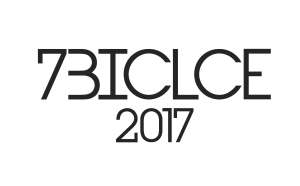List of workshops
- Morphosyntactic Variation in World Englishes: Apparent-time and diachronic studies
- Constructions and language processing: Performance-driven constraints on perception and production
- Speech Rhythm in L1, L2 and Learner Varieties of English
- Big data – small data – abstractness – concreteness: Critical approaches to methods in Corpus Linguistics
- Different perspectives on proper noun modifiers
- Approaches to fragments and ellipsis in spoken and written English
**CFPs closed**
1. Morphosyntactic Variation in World Englishes: Apparent-time and diachronic studies
Convenors: Cristina Suárez-Gómez (University of the Balearic Islands), Lucía Loureiro-Porto (University of the Balearic Islands) and Robert Fuchs (Hong Kong Baptist University)
This workshop aims to bring together researchers working in the area of morphosyntactic variation and/or change in World Englishes (be it an L1, a colonial variety or a Foreign Language). In particular, contributions dealing with the following aspects are welcome:
- morphosyntactic change, both based on diachronic corpora and apparent-time studies
- the paradigm gap between ESL and EFL varieties and their convergent and/or divergent grammars
- convergence with the input variety/varieties, motivated by the influence of the superstrate, and/or the learning processes which shape the grammars of indigenized varieties through processes of analogy and transparency.
- divergent grammars/grammatical constructions, specifically those motivated by the local ecologies and substrate(s) languages
The deadline for submissions of abstracts (ca. 500 words, excluding title, references and keywords) has been extended to 10 January 2017. Notification of acceptance will be sent out by the end of January 2017. Abstracts should be sent to: biclce.englishes.workshop@gmail.com
For further information, please see the full CFP here.
2. Constructions and language processing: Performance-driven constraints on perception and production
Convenors: David Tizón-Couto (University of Vigo) and David Lorenz (Albert-Ludwigs-Universität Freiburg)
Designed to encompass both the constructional and the efficiency-based approaches to processing, the workshop invites synchronic and diachronic corpus-based or experimental research on the impact of language processing on spoken language and communication (at any level of linguistic analysis).
The deadline for submissions of abstracts (ca. 500 words, excluding title, references and keywords) has been extended until 19 February 2017. Notification of acceptance will be sent out by 15 March 2017. Abstracts should be sent to biclce.processing.workshop@gmail.com
For further information, please see the full CFP here.
3. Speech Rhythm in L1, L2 and Learner Varieties of English
Convenor: Robert Fuchs (Hong Kong Baptist University)
This workshop aims to bring together researchers working on one or more of the following aspects:
- Applications of rhythm metrics that measure speech rhythm based on acoustic correlates of prominence other than duration
- Comparative tests of the validity and reliability of existing rhythm metrics
- Perceptual relevance and psychological reality of speech rhythm
- Relevance of speech rhythm in Second Language Acquisition/learner Englishes, e.g. its contribution to foreign accent as well as pedagogical approaches
- Differences in speech rhythm between varieties previously thought to be in the same “rhythm class”
- Sociolinguistic relevance of speech rhythm in indexing e.g. lectal differences or ethnic subvarieties within the same national variety of English
Apart from addressing one or more of the issues above, papers need be concerned with (a variety of) English or a language contact situation involving English (in keeping with the scope of the conference).
The workshop will consist of full papers and work in progress reports, which will be allotted 20 minutes for presentation (plus 10 minutes for discussion). The deadline for submission of abstracts (ca. 500 words, excluding title, references and keywords) has been extended to 10 January 2017. Notification of acceptance will be sent out by the end of January 2017. Abstracts should be sent to rfuchs@hkbu.edu.hk
For further information, please see the full CFP here.
4. Big data – small data – abstractness – concreteness: Critical approaches to methods in Corpus Linguistics
Convenors: Ole Schützler and Julia Schlüter (University of Bamberg)
With Gries (2013: 4) we hold the view that strongly quantitative approaches and less quantitative (or qualitative) approaches to corpus research are not – or should not be – at odds, but must be seen and used in combination, as two sides of the same coin. However, the linguistic community still seems to be divided into two camps: those who use a variety of (relatively abstract) sophisticated statistical techniques and those who predominantly apply methods at a lower level of abstraction.
In this workshop we aim to bridge this apparent gap. We invite researchers to present case studies that work towards a ‘best practice’ in corpus linguistics, illustrating how state-of-the-art quantitative methods can be combined with better-established, traditional approaches and thus remain transparently grounded in the features at their basis.
The deadline for submission of abstracts (ca. 500 words, excluding title, references and keywords) is 15 February 2017. Notification of acceptance will be sent out by 15 March 2017. Abstracts should be sent to corpus-methods.eng-ling@uni-bamberg.de
For further information, please see the full CFP here.
5. Different perspectives on proper noun modifiers
Convenors: Tine Breban (The University of Manchester) & Julia Kolkmann (University of York)
Proper nouns used as modifiers, as e.g. in the Watergate scandal, a London theatre, the Ghana problem, another Hillary phone call, are a relatively new and productive phenomenon in English (see Biber and Gray 2011, Rosenbach 2007). There are only a few studies on the phenomenon in English (Rosenbach 2007, 2010) and a few on similar constructions in other Germanic languages (Schlücker 2013 on German and Koptjevskaja-Tamm 2013 on Swedish), which rather than fully explaining the phenomenon, in fact identify a variety of issues for further study. These issues fall within different traditional areas of linguistics, morpho-syntax, semantics and pragmatics, phonetics, sociolinguistics, etc. We believe that only by investigating these issues ‘in dialogue’ can we fully understand this new use of proper nouns in English. The aim of this workshop is then to bring together experts from different areas around the topic of proper noun modifiers. The workshop is seen as a stepping stone towards a special journal issue, in which the contributors can work with and benefit from the findings of their co-contributors, in order to reach a fuller level of understanding of this new phenomenon as well as, more generally, of the interplay of different fields of linguistics.
The workshop will consist of full papers and work in progress reports, which will be allotted 20 minutes for presentation (plus 10 minutes for discussion). The deadline for submission of abstracts (ca. 500 words, excluding title, references and keywords) is 15 January 2017. Notification of acceptance will be sent out by 15 March 2017. Abstracts should be sent to tine.breban@manchester.ac.uk
For further information, please see the full CFP here.
6. Approaches to fragments and ellipsis in spoken and written English
Convenors: Nikolaos Lavidas (University of Thessaloniki), Meike Pentrel (Osnabrück University)
Spoken (and written) language exhibits a high number of incomplete sentences, among them cases of ellipsis or fragments, such as “From Europe!” or “Milk?”. A crucial question posed in previous studies is whether fragments are sentential or not. Moreover, the interpretation of fragments and their force has been at the center of the relevant research (Barton 1990; Stainton 2006). Analyses vary from those that follow an “ellipsis approach,” or a deletion-based analysis of fragments (among others, Hankamer 1979; Morgan 1973 – Stanley 2000; Reich 2003; Brunetti 2003 – Merchant 2001, 2004, 2008), to those of the direct interpretation approach, or “direct generation” account (among others, Ginzburg & Sag 2000; Barton 1990; Stainton 1998 – van Riemsdijk 1978; Culicover & Jackendoff 2005).
The idea of the workshop is to bring together scholars interested in a systematic study of fragments. The focus will be on exploring characteristics of ellipsis and fragments from various theoretical perspectives, assessing the well-established notion of “complete sentences” as a basis of grammatical theories. The issues to be addressed include, among others, the following:
- The theoretical analyses of fragments and ellipsis in English
- Fragments/ellipsis as constructions
- The notion of the ‘complete sentence’
- Fragments/ellipsis and different English registers
- Fragments and Grammar – Fragments and Communication
- Fragments as elements in an ‘interactional grammar’
- The synchrony and diachrony of fragments and ellipsis
- Similarities and differences between fragments and formulaic units
The deadline for submission of abstracts (no longer than 350 words, excluding references) is 15 February 2017. Notification of acceptance will be send out by 15 March 2017. Please send your abstracts to nlavidas@enl-auth.gr (Nikolaos Lavidas) and mpentrel@uos.de (Meike Pentrel).
For further information, please see the full CFP here.

